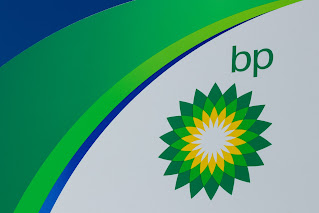Dirty money $$$
I've spent the last week mulling over the question of museum sponsorship and trying to unravel my own feelings on the subject.
Frankly, I'm not sure I even want to think about it too much. I'm as exhausted as I believe everyone else is. The media seems to have a never-ending appetite for controversy. Our society's continual struggle with self-improvement makes for good print but also perpetuates a feeling of hopelessness. A sense that we're stuck exactly where we were 100 years ago.
And to exacerbate this feeling of failure, big corporations such as British Petroleum (BP) persist in gaslighting the general public about the nature of their sponsorship of the arts. Waving their hands in the air, pretending as if they are not using their wealth and power to exert undue influence over institutions that are meant to serve the public interest.
What exactly is BP doing sponsoring the Hieroglyphs Unlocking Ancient Egypt exhibit at the British Museum? The British Museum's website paints a rather selfless picture of the sponsorship. There is a BP lecture hall. BP supports special days such as Chinese New Year and the Mexican Day of the Dead. BP supports national and international work.
Bob Dudley, BP's CEO: "We support the best of the British Arts and Culture with no strings attached." (speaking at BP AGM in 2016)
When BP supported the Days of the Dead festival in association with the government of Mexico it did not go unnoticed that this support came at a time when BP was actively seeking commercial deals in Mexico. BP executives were able to make curatorial decisions about the exhibit and participated in exclusive gala events in which they had social access to high-ranking Mexican government officials. The British Museum has received a lot of criticism over this fact.
There has also been significant backlash over the Sackler family who are currently embroiled in various lawsuits over their production and distribution of the highly addictive oxycontin. The very drug which has been fueling the U.S.'s opioid crisis. In this instance though, the Victoria and Albert Museum, the British Museum as well as the Metropolitan of Art (MET) museum, all distanced themselves from the Sackler name. Choosing to remove the family's name from museum buildings.
It seems as though museums are unwilling to associate themselves with drug dealers, but they are still on the fence when it comes to distancing themselves from the very industries which are accelerating the effects of global warming.
Perhaps the positive of this is that cultural institutions are beginning to reevaluate the nature of the sponsorship they receive. Russian oligarchs, climate polluters, and drug pushers' relationships with our cultural institutions are no longer going unnoticed. Thanks to greater public scrutiny and the power of social media, terms such as 'artwashing' have been introduced into our modern-day lexicon. And the general public feels really strongly about amoral corporations using dirty money to buy themselves a good reputation. Because, at the heart of it, that's what sponsorship gets you. Positive brand positioning, the glow of your 'good deeds' washing away all of your past sins.
Except now, it's not quite so simple. As more and more museums are coming to realise, generations of building public trust, their reputation for investing in the growth of communities, preserving priceless art, as well as their dedication to education, can all be tarnished through the acceptance of dirty money.




Comments
Post a Comment